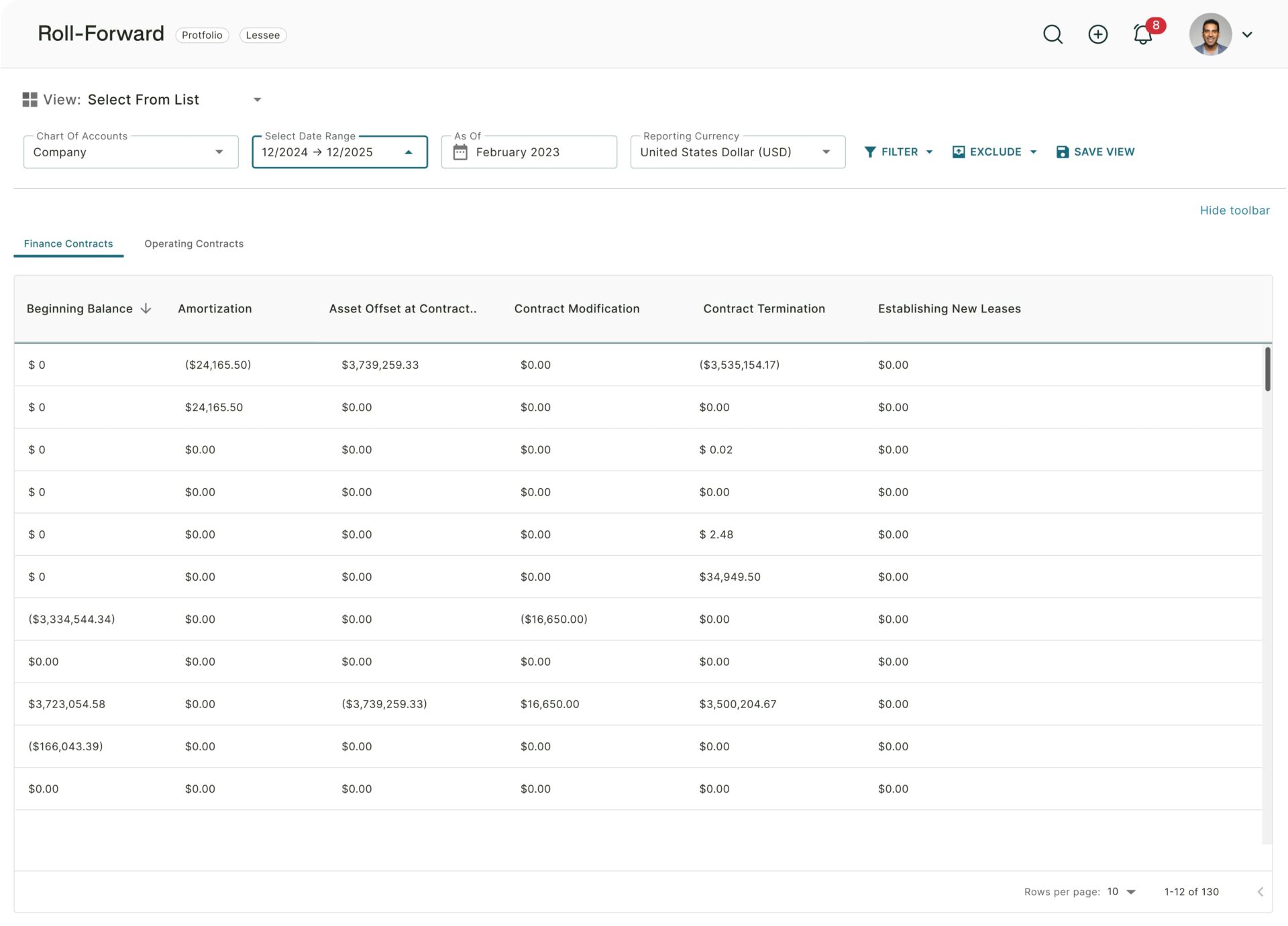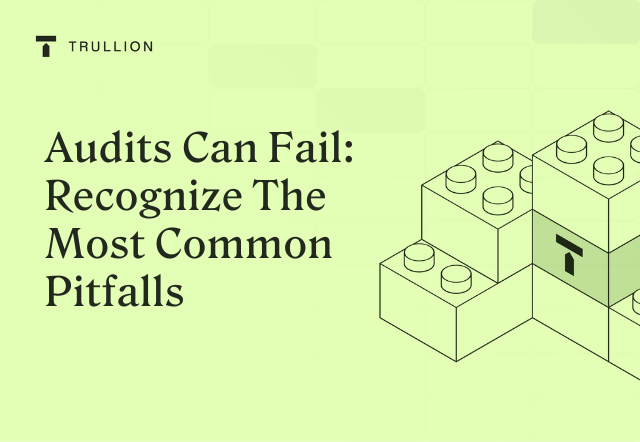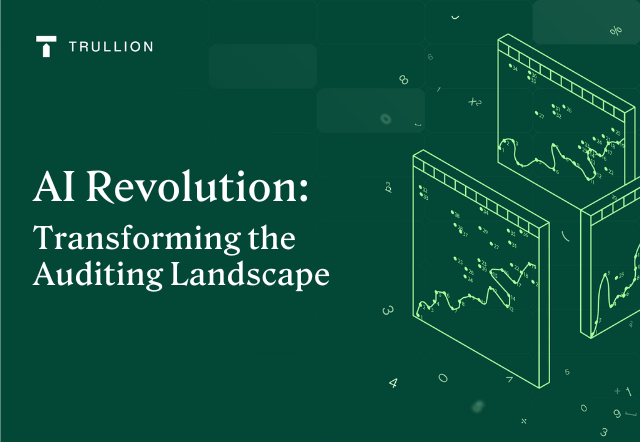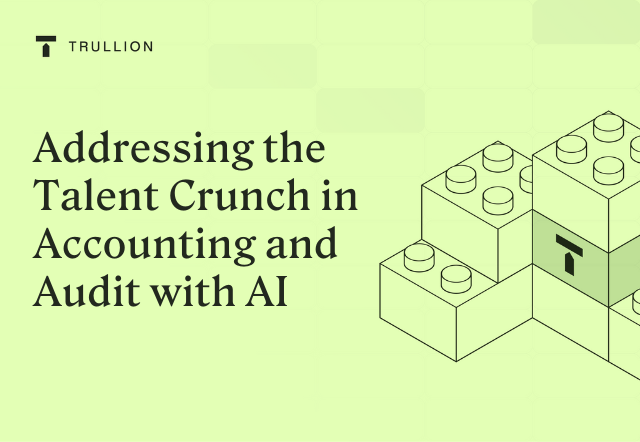*Originally published on Fortune.
Audit and accounting play a critical role in a company’s overall success and reputation. But the profession has been hit with significant institutional obstacles over the past few years. A severe labor shortage and outdated manual processes are burdening understaffed accounting teams, causing a startling decline in the quality of financial reporting for many public companies.
To stay ahead of these mounting challenges, auditors and accountants need to develop new skills, master the latest technologies, and adapt to the increasing complexity of business and regulatory environments to maintain their firms’ integrity. “The reality is that the audit industry is undergoing a significant but necessary transformation,” says Isaac Heller, CEO and cofounder of Trullion, an artificial intelligence (AI)–-powered audit and accounting platform. “These macro-trends are leading all firms to point in one direction: toward AI.”
More organizations are realizing that with the help of this technology, the auditor role can change for the better. Businesses are leveraging generative AI to fill the skills gap plaguing the accounting industry. Trullion tackles some of these issues by helping accounting teams boost productivity and maximize efficiency by automating common audit procedures. Rather than spending all their time gathering, correlating, formatting, and summarizing information, Trullion’s AI-enabled features allow more opportunity for accounting teams to spend its resources analyzing and evaluating the results or implications of the information and data.
Unlocking key insights with generative AI
Today, AI-powered tools and platforms can assist with many stressful, time-consuming elements of an auditor’s role while dramatically reducing the risks associated with an audit.
“Automation will streamline repetitive tasks, such as data collection, processing, and evidence gathering,” says Heller. “This affords teams more time to perform the complex audit work that requires human discernment.”
Trullion is on the cutting edge of harnessing GenAI to empower accountants and auditors. Their GenAI chatbot started out as a research tool – allowing auditors to upload accounting standards and guidance documents and then ask the platform for answers to technical accounting questions. As the underlying large language models (“LLMs”) have evolved, so have the ways in which Trullion users interact with GenAI. Auditors are now using the technology to summarize data from large documents, and even to ask the system complex analytical questions about trends in financial statements.
By allowing auditors to train the platform’s generative AI model on their own documentations, Trullion can provide tailored responses with source citations, ensuring accuracy and reliability. This ability to target queries at specific source documentation and provide response citations are important protections for accounting firms that are cautious about staff using external generative AI tools that don’t have the appropriate guardrails to ensure compliance.
“When I was an auditor, I always had trouble searching for and finding the accounting guidance I needed, requiring me to ask my managers for frequent assistance,” says Amanda Nessel, solutions consultant at Trullion. “With AI, fewer questions will require human interaction because the information can be retrieved right from the data set—quickly.”
Organizing vast amounts of unstructured data
Having to manually extract data from documents that are not easily combined into one source, such as scanned documents and outdated digital files, is typically a tedious task for auditors. For Bennett Thrasher, an accounting firm based in Atlanta, Ga., Trullion’s data extraction tools have enabled junior and senior team members to save time on these tasks so they can increase collaboration on high-level analytical work.
“On one of our most acquisitive clients, we were able to upload purchase documents and utilize Trullion’s AI-powered interface to identify and extract key terms in an agreement with significant accounting implications,” says Mike Reynolds, a partner at Bennett Thrasher. “We have also utilized the AI functionality to upload various industry and accounting technical white papers and guidance in order to quickly perform technical research and develop a knowledge base for our team members.”
Additionally, one of the most arduous manual tasks for an auditor is “ticking and tying” financial statements—checking each line item to ensure it’s properly accounted for and correctly tied to other related items. This process is crucial to fraud detection and financial transparency for a business and normally involves hundreds of hours poring over documents with calculators or spreadsheet formulas to verify consistency and mathematical accuracy.
“Our platform allows users to extract PDF data, automate associated accounting workflows, and yield audit-ready reports,” says Nessel. Whether a firm is working with tens or thousands of documents, the platform’s Optical Character Recognition (OCR) feature can scan long documents and automatically write up key takeaways and data points in a structured format, allowing auditors to conduct deeper interrogations of the data more quickly.
Paving the way for more strategic insights and better business
As the role of the auditor becomes ever more vital, Heller expects the pace of innovation and promise of generative AI to transform the annual audit into a more continuous, proactive, insight-driven process without the friction of outdated processes. “We are just scratching the surface of the myriad ways in which AI and adjacent technologies are going to transform audit,” says Heller. “We are still incredibly early on the adoption curve for firms.”
Learn more about how Trullion can help make your audits more efficient.








